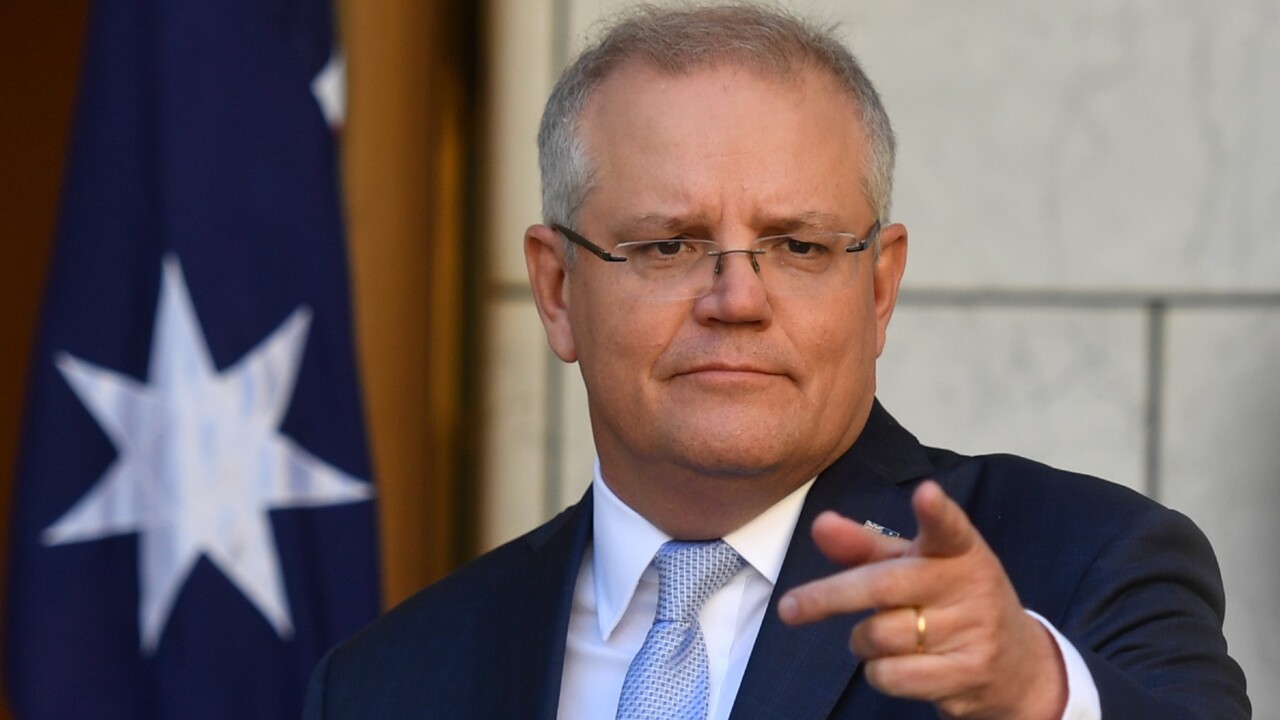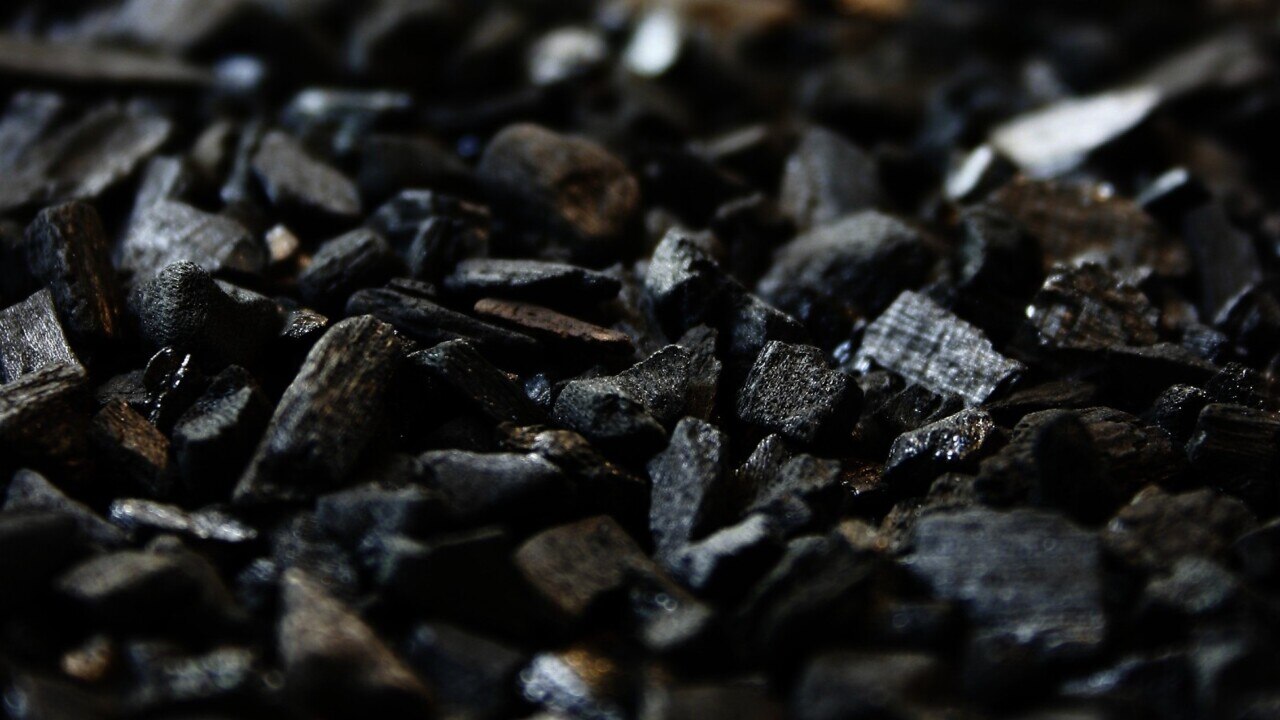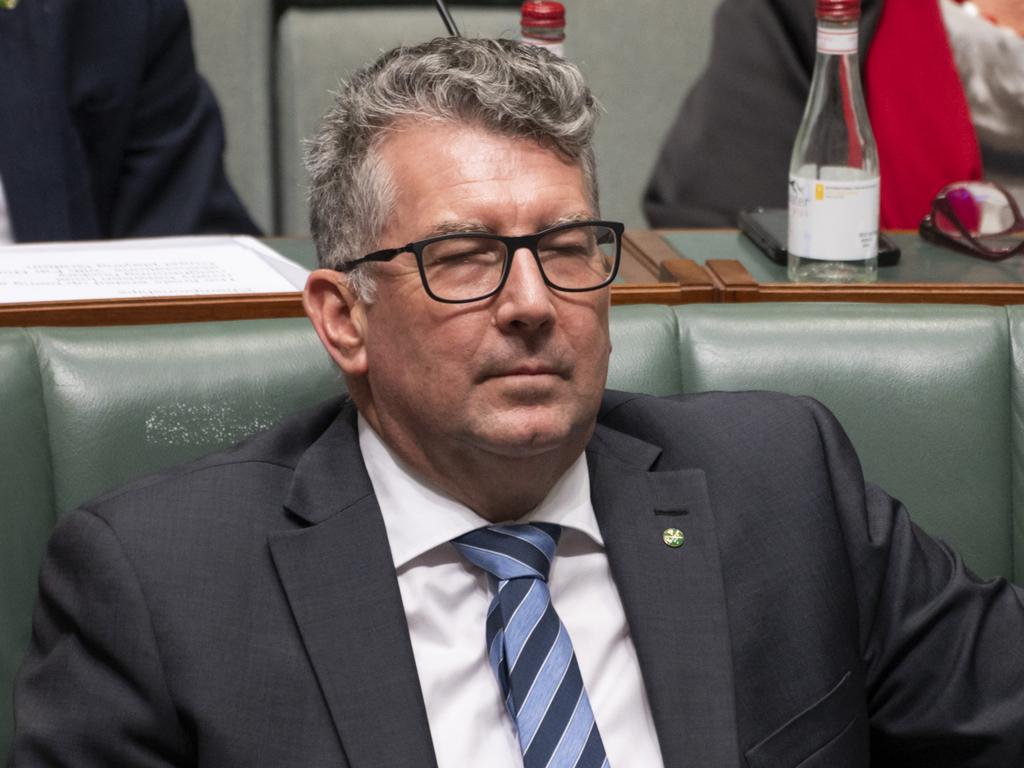Australia will aim for net zero, Scott Morrison tells Joe Biden
Scott Morrison has given an assurance to the US that Australia will work towards a goal of net zero emissions and is on track to ‘meet and beat’ its 2030 targets.

Scott Morrison has given an assurance to the US that Australia will work towards a goal of net zero emissions and is on track to “meet and beat” its 2030 targets after President Joe Biden warned that the globe faced an “inflection point” in its history.
In his first speech to the UN General Assembly, Mr Biden said the globe faced a series of new challenges including climate change, Covid-19, threats to human rights, and the emergence of new pressures on the international rules-based order.
Mr Biden said the climate crisis meant the world was “fast approaching a ‘point of no return’ in the literal sense” and that every nation needed to “bring their highest possible ambitions to the table when we meet in Glasgow” to keep alive the goal of limiting global warming to 1.5C.
Speaking in New York after his meeting with Mr Biden, the Prime Minister said Australia would “continue to work on our plan as to how we can continue to reduce emissions to zero well into the future.”
“As I indicated at the start of this year, it was our intention to do (this),” he said.
“In Australia, it’s not enough to have a commitment to something – you’ve got to have a plan to achieve it. And this is an important part of the way we approach this task. You have a plan to meet your commitment.
“If you don’t have a plan, you don’t have a commitment.”
Chinese President Xi Jinping also used his address to the UN General Assembly to tackle the climate challenge, saying China – the world’s largest carbon emitter – would no longer build coal-fired power stations overseas.

Mr Xi reaffirmed China’s ambition to have its emissions peak before 2030 and achieve carbon neutrality before 2060, but did not announce the end of support for coal-fired power stations domestically, where new coal projects are being commissioned at a greater rate than anywhere else in the world. “We need to accelerate (the) transition to a green and low-carbon economy and achieve greener recovery and development,” he said.
“China will strive to reprieve carbon dioxide emissions before 2030, and achieve chief carbon neutrality before 2060.
“This requires tremendous hard work and we will make every effort to meet these goals. China will step up support for other developing countries in developing green and low carbon energy and will not build new coal-fired power projects abroad.”
Mr Morrison said he was able to inform Mr Biden of the “significant progress Australia has made”, including “20 per cent reduction in emissions in Australia since 2005, which outstrips many countries’ performance today, including here, frankly, in the US, Canada, New Zealand and so many other countries.”
Mr Morrison is facing growing international pressure to commit Australia to a net zero emissions goal by 2050 ahead of the upcoming climate summit in Glasgow, but faces opposition to this stance from the Nationals.
He has pledged to achieve the goal of reducing emissions through adoption of new technologies rather than the imposition of new taxes, and flagged he had conveyed this to Mr Biden.
“It was a good opportunity to discuss the important elements of that plan today, in particular technology, the hydrogen projects that we’re engaged in … and the important role hydrogen technology as well as CCUS (carbon capture, utilisation and storage) battery technology and others are going to play, not just in advanced economies but in developing economies as well,” he said.

He also flagged securing energy supply chains and the development of new technologies would be an “important discussion point on Friday as part of the Quad” leaders’ meetings. Mr Morrison said discussions would focus on “critical supply chains, rare earths and critical minerals and how they feed into the many technologies that make up the new energy economy”.
Resources Minister Keith Pitt on Wednesday said the outlook for Australian coal producers remained positive despite China’s announcement.
Economist Saul Eslake also said he did not think Australia would be impacted by the Chinese announcement, given most of the nation’s coal exports went to Japan, India and Korea.
Ai Group climate and energy head Tennant Reed said China’s policy would ensure the Belt and Road Initiative was not used to fund coal projects in emerging markets and Credit Suisse analyst Saul Kavonic said the coal price would increase under the policy.
Beijing’s policy shift will make it harder for poor and middle income countries to develop new coal power stations, with China mostly funding coal projects in Africa and small markets in Asia.
Additional Reporting: Will Glasgow, Greg Brown, Perry Williams
More Coverage









To join the conversation, please log in. Don't have an account? Register
Join the conversation, you are commenting as Logout